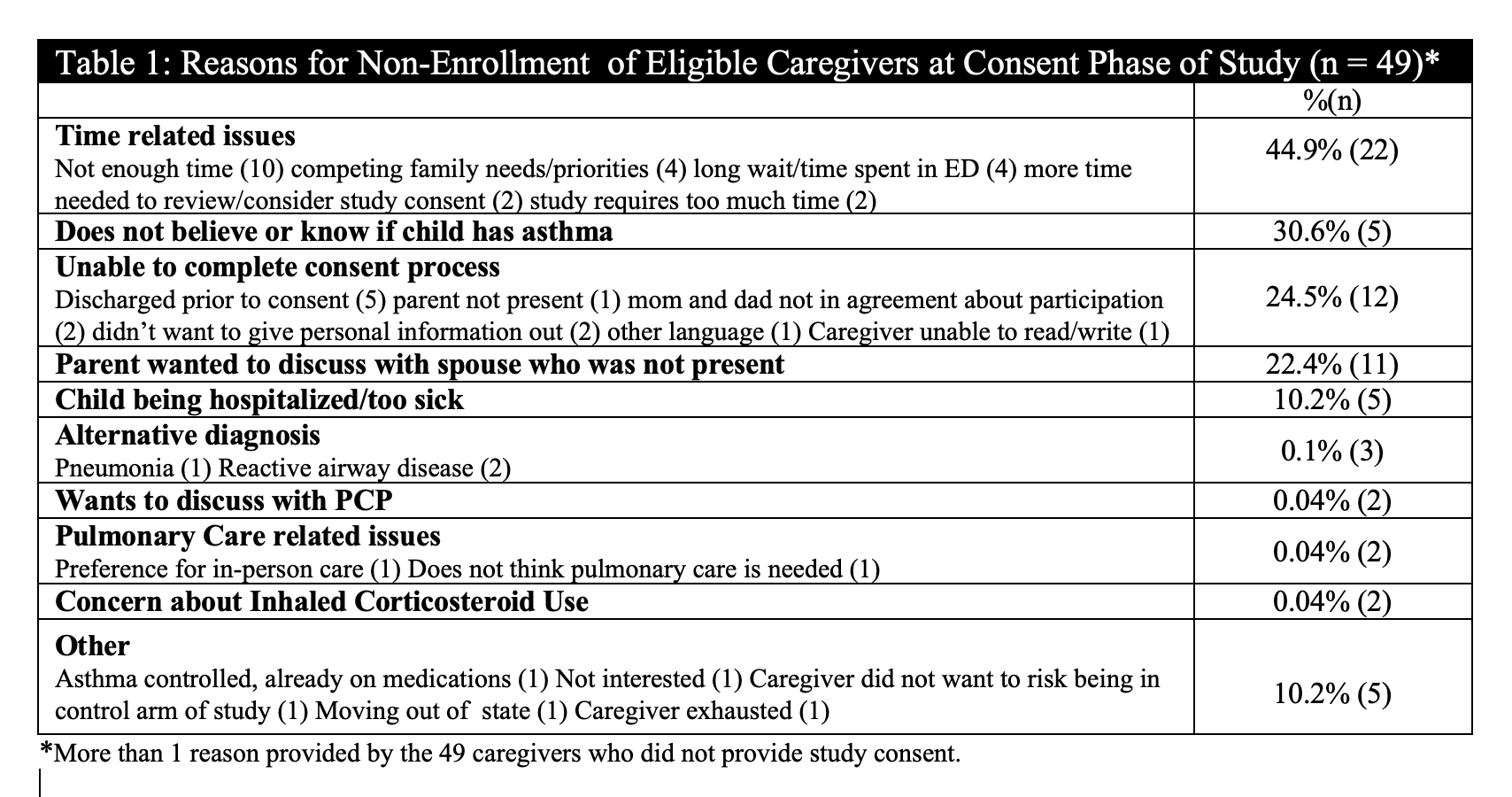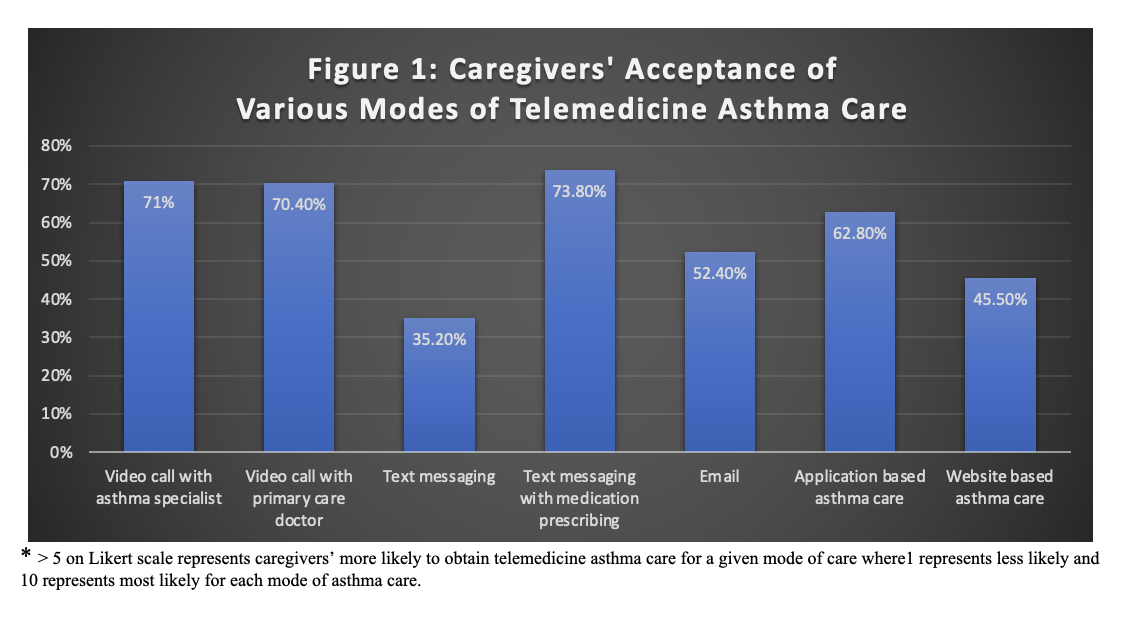Asthma
Session: Asthma 1
183 - Caregiver Acceptance of Initiating Telemedicine Asthma Specialist Follow-up Care During an Emergency Department Visit
Friday, May 3, 2024
5:15 PM - 7:15 PM ET
Poster Number: 183
Publication Number: 183.58
Publication Number: 183.58

Jeanine E. Hall, MD (she/her/hers)
Assistant Professor of Pediatrics
Children's Hospital Los Angeles/University of Southern California-Keck School of Medicine
Los Angeles, California, United States
Presenting Author(s)
Background: Many patients seen in the ED for asthma could optimize subsequent outcomes with specialist care. However, referrals are low and time-consuming, with lengthy appointment wait-times, resulting in unresolved asthma morbidity. Telemedicine could serve as a viable option to expedite initiation of specialist care, but caregiver acceptability to initiating this care modality during an ED visit is unknown.
Objective: To examine caregiver acceptance to initiating telemedicine asthma specialist follow-up care during an ED encounter for asthma.
Design/Methods: This is a secondary analysis of data from a clinical trial of SMS text message-based asynchronous telemedicine (SMS-AT) asthma specialist care for children seen in the ED for asthma between June 2022 – August 2023. Children 2 years old presenting with a respiratory complaint and screening positive for asthma were offered to participate in an SMS-AT intervention providing an immediate asthma severity assessment and subsequent asthma survey assessments via SMS text every 3 weeks. Controller medications were initiated within 24 hours with ongoing medication adjustment by an asthma specialist for 1 year. We examined sociodemographic and clinical characteristics, enrollment rates, and reasons for non-enrollment.
Results: Approximately 66% (200 of 302) of children with respiratory chief complaints screened positive for asthma—75% of their caregivers agreed to enroll in SMS-AT asthma care. The most common reasons for non-enrollment included: time-related issues (45%), disagreement with asthma diagnosis (31%), and incomplete consent process (25%) (Table 1). Most enrollees were Hispanic (77%) and had public health insurance (92%). Over the prior year, 84% reported one or more asthma exacerbations, while 72% reported no controller medication use (Table 2). Nearly 80% of children never received specialist care, but 84% desired it. The telemedicine modalities asthma care caregivers preferred were: text message-based care with prescriptions (74%), video call (71%), smartphone apps (63%) email (52%) (Figure 2).
Conclusion(s): SMS-AT asthma specialist care initiated during an ED visit is an appealing care model for caregivers of children with asthma and is a potential means to fast-track specialist care for high-risk patients. Future studies are needed to assess the clinical benefits of SMS-AT asthma care.

.jpg)

